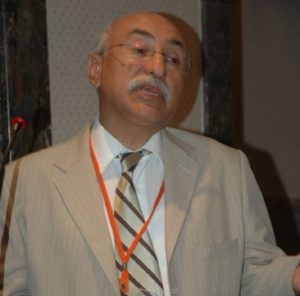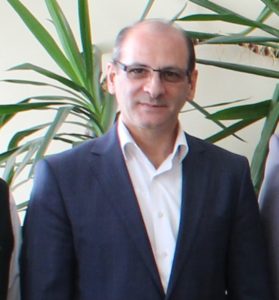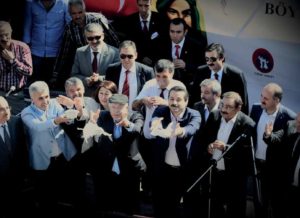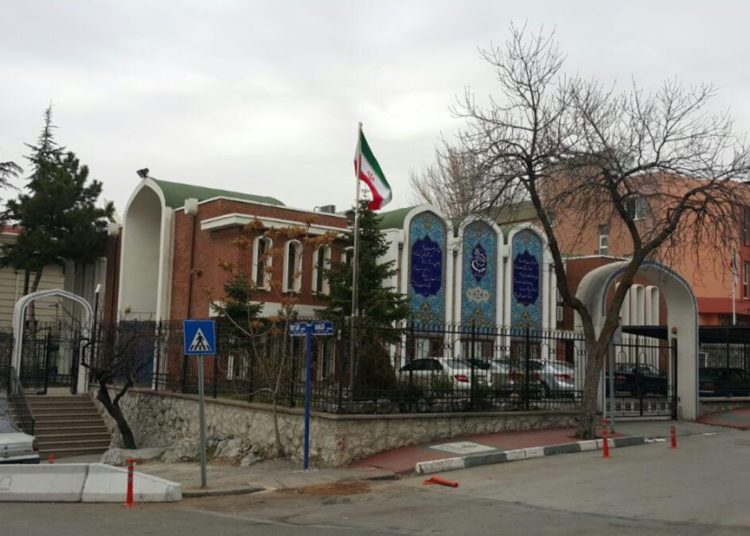Abdullah Bozkurt/Stockholm
Turkish investigators uncovered clandestine efforts by Iran to co-opt Turkey’s Shiite and Alevis as part of a secret campaign to undermine the social fabric of the Turkish Republic and sow seeds of discord with the majority Sunni population.
The secret plot was uncovered during a counterterrorism investigation into Islamic Revolutionary Guards Corps (IRGC) Quds Force activities in the capital pursued by the Ankara chief public prosecutor since June 2012. The investigation led the police to identify a plot by Iranian operatives and their Turkish assets to penetrate Shiite and Alevi communities in Turkey.
The prosecutor ordered a separate probe of the plot on December 24, 2013 under investigation file No. 2013/746 while allowing the Quds Force investigation to run its course on a parallel track. However, two months later, the government intervened in the case when the Quds Force probe incriminated senior aides of then-Prime Minister and current President Recep Tayyip Erdoğan.
Both investigations were hushed up by the government, which reassigned the investigating prosecutors and police chiefs and ordered a halt to all surveillance and wiretapping of Iranian operatives and their Turkish assets.
Nevertheless, the evidence that had been collected by the police until the investigation was abruptly killed by the government was enough to shed light on how Iran pursued a secret agenda of shaking the allegiance of Turkey’s Alevis and Shiites to the Turkish Republic, planting seeds of discord and driving a wedge between them and other groups in Turkey.
The police investigation file submitted to the prosecutor’s office named two main suspects in the Iranian plot:
In contrast to the Shiites, locally known as Caferi (Jafari) in Turkey, Iran reaching out to Alevis represents relatively a new dynamic given the fact that Alevis are not actually Shiites and they are ethnically Turkish. By and large, they also embrace secular values and support center-left parties, especially the main opposition Republican People’s Party (CHP), whose leader Kemal Kılıçdaroğlu is an Alevi “dede” (spiritual leader).
The sectarian conflict in Turkey unfortunately led to some violent events in the past, and Sunni-Alevi provocations have resulted in deaths and tragedies in the Turkish provinces of Çorum, Kahramanmaraş and Sivas. Turkey sitting on sectarian fault lines represents one of the weakest aspects of the Turkish Republic and is open to agitation and provocation.
Turkish investigators were monitoring the activities of Iranian operatives among Turkey’s Alevis and Shiites and trying to discover plots that posed a threat to national security.
The two main suspects in this probe were Seyed Asghar Seyedtorabi, a 56-year-old Iranian national who was in charge of the Iran Culture Office in Ankara, and Gülağ Öz, a 69-year-old Turkish national who was head of an Ankara-based foundation called Gazi Derneği ve Vakfı.

Police wiretapped Seyedtorabi’s phone after securing a warrant from a judge, and his conversations revealed the network he was involved with in Turkey. He was also placed under surveillance during which police videotaped and photographed him while meeting with Turkish assets in various locations.
In a phone conversation recorded on October 26, 2013 at 16:10 hours, a man named Muammer called Seyedtorabi to express the concern he and his friends were feeling after the exposure of an Iranian spy ring in Iğdır. In September 2013 Turkish authorities had arrested seven Turkish nationals connected to two Iranian spies who were earlier arrested as part of an espionage ring. The Turks were accused of spying for Iran and had given Iranian agents information on various issues. The detained Iranian agents were planning to fuel an insurgency among the Kurdish population in Turkey’s South and Southeast according to the investigation file.
Classified surveillance warrant motion filed by the police:
Muammer informed Seyedtorabi that his associates had decided to cancel a planned event after reports about the espionage network in Iğdır appeared in the Turkish media. Seyedtorabi claimed ignorance about the incident in Iğdır but said OK about the cancellation. The conversation did not mention what the planned event was, but it was most likely part of Tehran-funded trips to Shiite sites in Iran to influence Alevi leaders. Similar plans were uncovered in the main Quds Force investigation as well, which indicated how Iran poured money into developing assets in Turkey.
Wiretaps and surveillance records of Iranian operative and his Turkish assets:
Police surveillance on November 3, 2012 recorded Seyedtorabi and Siamak Mazloumravasan, also a suspect in the case, speaking on the sidelines of a meeting about Ghadir Khumm — which marks the appointment of the first Shia imam of Muslims — in Ankara’s Çağdaş Sanatlar Merkezi art gallery. Öz was also present at the meeting.
The phone conversation between Seyedtorabi and Öz on September 26, 2013, intercepted in the wiretap, revealed that the poster layouts for the Ghadir Khumm event were cleared by Iranian operatives. He said the drafts were ready and wanted to run them by the boss and visit the Iran Culture Office. His visit was also recorded by police officers who were following Öz when he made the visit.
The surveillance photos showed that Öz had met Seyedtorabi many times in various locations including the Iran Culture Office and the Iranian Perspolis Cafe/Restaurant, and had phone conversations with him. Öz received instructions from Seyedtorabi to prepare a map that located Alevi and Shiite villages in Turkey, their sacred places and their lodges (dergah). He was promised 10,000 euros for the assignment. In a phone conversation on November 5, 2013 Öz asked Seyedtorabi to come to his office to reimburse him for the costs he had incurred for the work he did for Iran.

In a September 23, 2013 phone call with a man named Mehmet, Öz explained that he had been working on a project to locate Alevis in Turkey and asked for his help, saying he needed a list of every Alevi village in the country. Öz also wanted to know where Alevis had their tombs and dergah. On the same day he called another man named Ender while Öz was still at the Iran Culture Office and informed him that he would pay him money if he came downtown, suggesting that he was paid in cash by his Iranian handlers at the culture office and paying others from that fund.
In a wiretapped phone conversation recorded on September 25, 2013 Öz was heard talking with a man identified only as Erdem about preparing a demographic map of Shiites and Alevis in Turkey. “We have in our possession a book of maps of Alevis and Shiites, weighing 15 kilos, that we brought from Iran,” said Öz, adding that some of the information in the book was incorrect. Erdem said he had been painstakingly trying to verify if some 10 villages were Alevi and that he had managed to sort it out eventually by reaching out to an unidentified man about the verification.
Wiretaps reveal how the Iran Culture Office was funding the Alevi project in Turkey:
In a phone conversation with an unidentified man on November 18, 2013 Öz talked about organizing a group to oppose a cemevi (Alevi house of worship)-mosque idea, a joint project endorsed by Sunni Turkish Islamic scholar Fethullah Gülen and Alevi CEM Foundation President Izzettin Doğan.
The project, started in September 2013, envisioned building a mosque and a cemevi that would occupy a complex of buildings and share a courtyard in an effort to overcome biases in both communities. The project secured majority support from Alevis and enjoyed the full backing of the Gülen movement. A poll conducted in October 2013 in Ankara showed that 61 percent of those surveyed said they approved of a cemevi and mosque being built next to each other, while 31 percent said they were against it.
The project, nearly finished with the construction of several buildings in the complex, was halted by the Erdoğan government in 2015 amid a crackdown on the Gülen group, and a criminal investigation was launched into the five people who were responsible for the joint project. The buildings were seized by the government and repurposed.

Turkey’s Alevis — not to be confused with Arab Alawites as in Syria — estimated to number some 15 million, generally feel that they have been persecuted for their beliefs and cultural values for centuries. Alevi parents commonly complain that their faith is either totally ignored or described as an immoral, non-Muslim belief system by teachers of the mandatory religious education classes in public schools.
The government’s Religious Affairs Directorate (Diyanet), the body that oversees religious affairs in the country, has long neglected the views and demands of Turkey’s Alevi community, and the problems remain unresolved in most cases. The status of the Alevi clergy and Alevi houses of worship were not seen as legitimate for decades, while the Diyanet was accused of purposely appointing non-Alevi clergymen to Alevi villages and encouraging the building of mosques in them.
The number of Caferis, Shiite Muslims in Turkey, are estimated to range between 500,000 and 3 million. They are followers of Iraq’s Grand Ayatollah Ali al-Sistani and also maintain links to Iran’s clergy.













